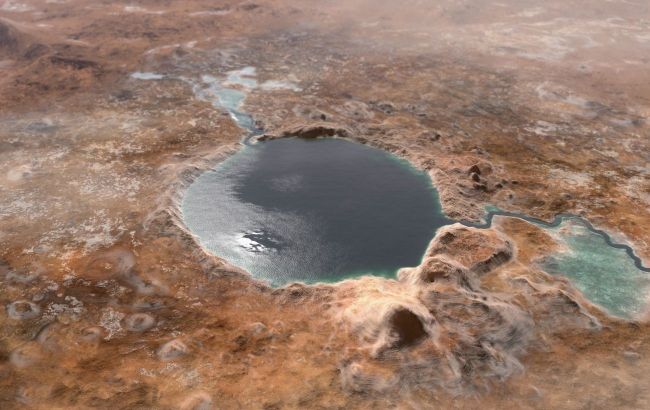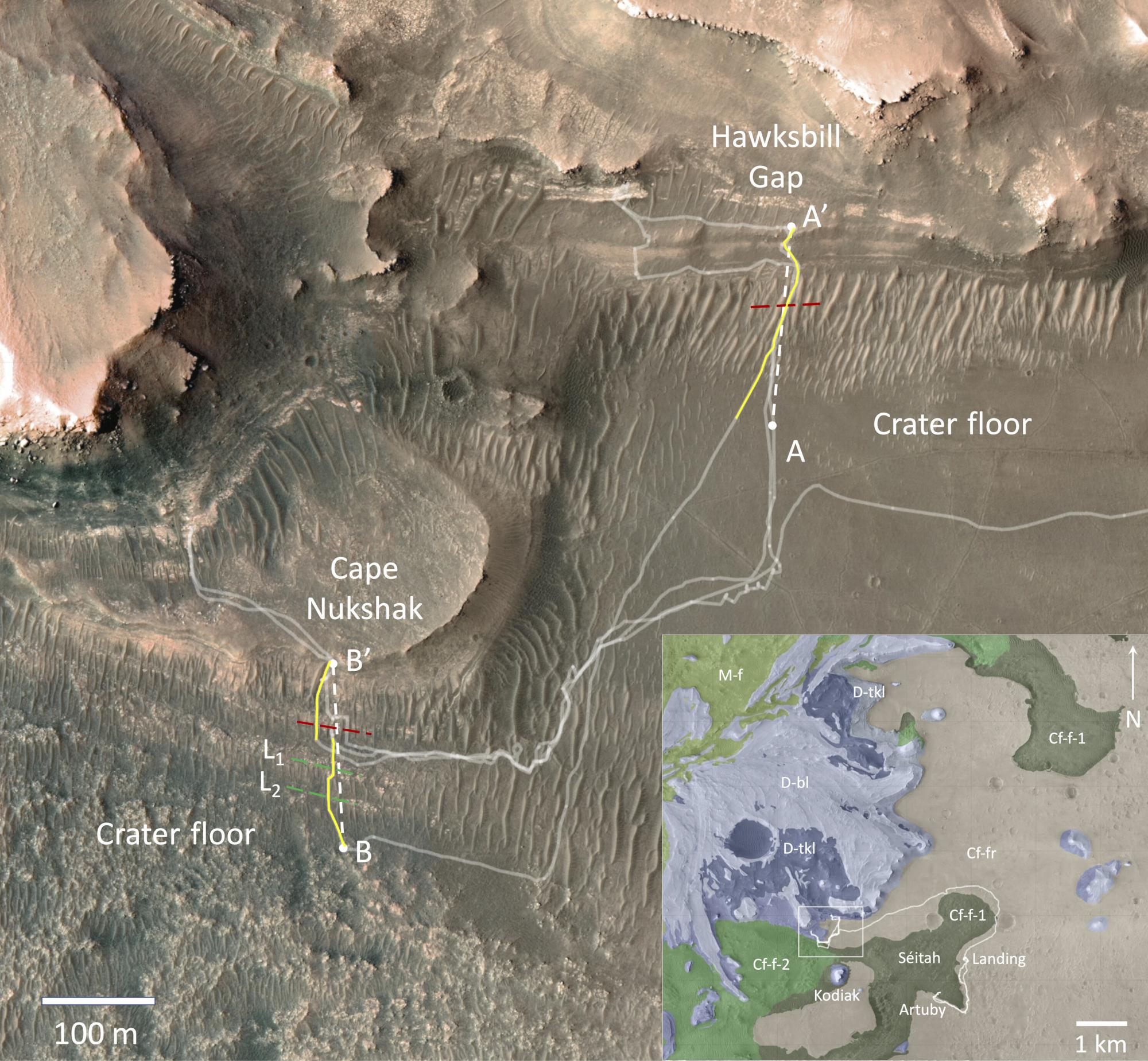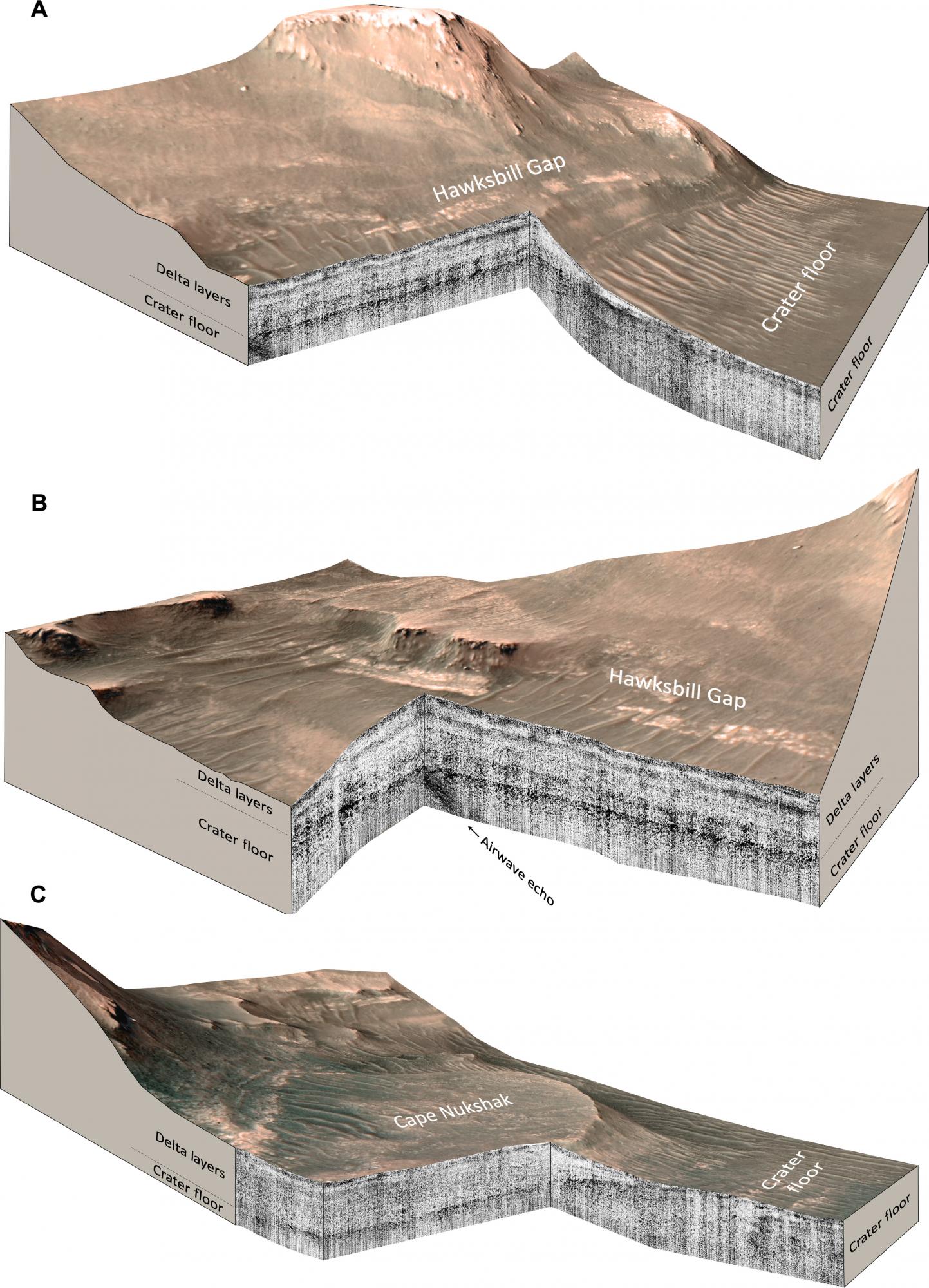Traces of lake found on Mars: Potential habitat for ancient life discovered
 Marsian crater Jezero was a lake around 3 billion years ago (Photo: Space.com)
Marsian crater Jezero was a lake around 3 billion years ago (Photo: Space.com)
The NASA Perseverance rover conducted research that led to a significant scientific discovery: there was water in the past on Mars, and it's possible that life could have existed on the Red Planet. Signs of an ancient Martian lake were found in the Jezero crater, according to the scientific journal Science Advances.
What is known about the Jezero crater
Scientists suggested that in the past, the Jezero crater on Mars might have housed a delta system, as its surface preserves characteristic features of the bed of a dried-up lake that was fed by an ancient river. New data obtained by the rover using the RIMFAX ground-penetrating radar confirmed this theory.
RIMFAX can detect ice, water, or saline brines at depths exceeding 10 meters and identify layers of soil and rock at depths of up to 20 meters.
RIMFAX allowed researchers to determine that the 4-billion-year-old crater, formed by an asteroid impact, was later filled with younger soil deposits and rocks.
 Map of the western delta region of Lake Jezero (photo: Science Advances)
Map of the western delta region of Lake Jezero (photo: Science Advances)
The younger deposits could have been delivered to the crater by water or as a result of volcanic activity, but Perseverance's radar data indicate that the former hypothesis is more likely.
It is assumed that the lake could have occupied a significant portion of the crater, possibly extending up to 7 kilometers, periodically expanding and contracting. Such a long-lived aquatic environment could have been an ideal place for the development of microbial life.

RIMFAX radarograms (Photo: Science Advances)
The rover has already drilled into the layers of deposits and collected several samples. Some rocks taken on board show intriguing signs of the presence of organic compounds, according to scientists.
However, until a mission to retrieve the rover's findings is sent, it is impossible to say for sure whether these compounds originate from biological or geological sources.
A frozen sea has been found beneath the surface of Mars.

